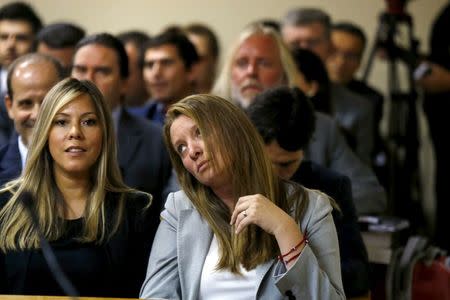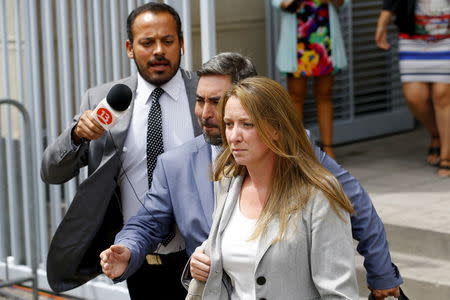Chile president affected 'deeply' as daughter-in-law appears in court
By Gram Slattery SANTIAGO (Reuters) - A Chilean court on Friday told President Michelle Bachelet's daughter-in-law not to leave the country during a probe into her tax affairs, and protesters demanded tighter restrictions as the president said on television the case has "affected me deeply." Investigators are looking into allegations that Natalia Compagnon issued false tax declarations, misrepresented her income, and issued fraudulent invoices relating to a real estate concern she half-owns. The courts on Friday officially pegged Compagnon as a criminal suspect, as raucous protesters shouted outside the courthouse in the city of Rancagua, 50 miles south of capital Santiago. Compagnon must remain in Chile and check in monthly with police while the investigation continues, the courts said. Intense media coverage of the case has weakened Bachelet's political standing and raised questions about her judgment at a time when she is struggling to push broad social and economic reforms through a fractious congress. "From my heart I want to say that these have been hard times for me and my family, very painful, and without doubt this has affected me deeply," Bachelet said in a brief address from the La Moneda presidential palace on Friday afternoon. "Chileans demand, deserve equal opportunities and rights, and this includes equality before the law." Bachelet has faced sharp criticism for her perceived slowness to react a year ago when revelations first broke that her son Sebastian Davalos, Compagnon's husband, used his political connections to get his spouse access to a $10 million dollar loan she used to turn a quick profit on a land deal. At the time, Chile's bank regulator said the loan appeared legal. But claims of influence peddling caused waves in Chile, casting legal scrutiny upon Compagnon and bringing scorn upon Bachelet. Many Chileans took to social media to dismiss the court decision as too soft, noting that the restrictions Compagnon faces are less severe than preventative jail time, which is an option that courts have used during recent high-profile fraud cases. "She got off easy," investigative newspaper El Mostrador posted on Twitter. (Reporting by Gram Slattery; Editing by Rosalba O'Brien and David Gregorio)

 Yahoo News
Yahoo News 



